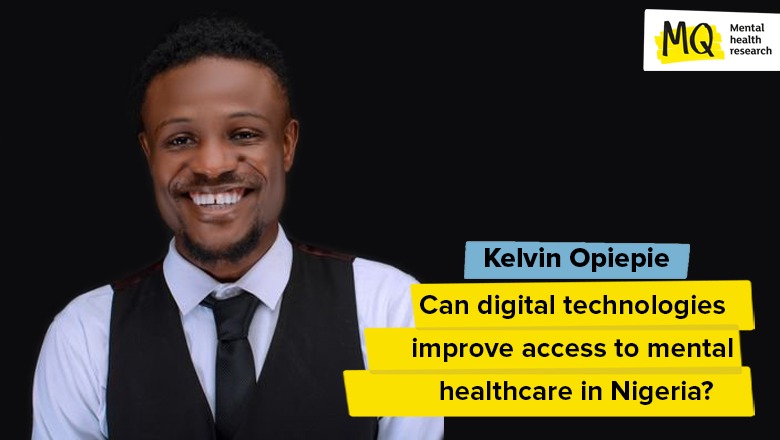This article was written by Kelvin Okeoghene Opiepie, African Youth Transformation Ambassador and founder of LEAD Community Foundation. He examines if digital technologies could improve access to mental healthcare in Nigeria.
The rapid advancement of digital technologies has brought more innovation than any other in human history, in spite of some negative impacts it has.
Before I talk extensively on the use of digital technologies in mental health especially in Low and Middle Income Countries with emphasis on Africa/Nigeria, I will state the challenges people living LMICs experience with their mental wellbeing, so that we can better understand the use of digital technologies in mental health and the impact it has on Low and Middle Income Countries.
The challenges
It is estimated that more than 80% of people living with a mental illness are living in low middle income countries and about 85% of the world's population live in the 153 Low and Middle Income Countries on earth. You can see, the figures are high and this also shows there is a mental health emergency.
In Nigeria for instance, lack of professionals to diagnose mental health issues is one of the major issues facing the country and with an estimate of over 200 million people but less than 300 psychiatrists. There are only 8-10 federal Neuro psychiatric hospitals in the country and when these facilities are available, the average person can’t afford it thereby leaving a larger population to self diagnose themselves with information online.
This is a major problem and researchers can develop technology that gives a quick but more accurate diagnosis of mental health conditions.
Are digital technologies the solution?
Digital technology in mental health is often seen as a solution to issues of access to mental health care. As researchers work on developing solutions, we need to look more on how we can bridge the gap and accessing treatment through the use of digital. The use of assistive technology will also be able to take mental health care from being institution dependent from hospitals due to lack of centers to cater for mental health needs to being community based or home based which can be easily accessible via technology.
In recent times, digital technology has been introduced into Nigeria to manage mental health issues but due to lack of awareness of these applications, the success rate of these technologies has been minimum. Information is key
The prevalence of mental health issues in Nigeria shows that an increasing number of people are vulnerable to mood disorders at some time in their life and access to mental health services are low because of on-site mental health services to manage them. However, in recent times, digital technologies have been steadily growing over the years but the main problems confronting them are lack of access to funding, absence of government in terms of political will, regulatory frameworks and policies.
Another barrier is adoption. How many people are aware of these technologies? How many people have downloaded them? And those that have them might not even understand the use of it.
So there is still a long way to go when it comes to digital applications of mental health in Nigeria.
Want to read more about the #MQScienceFestival? You can read about the top five calls to action here, or watch all of the presentations and discussions about the application of digital technologies in mental health below or on the MQ YouTube channel.



